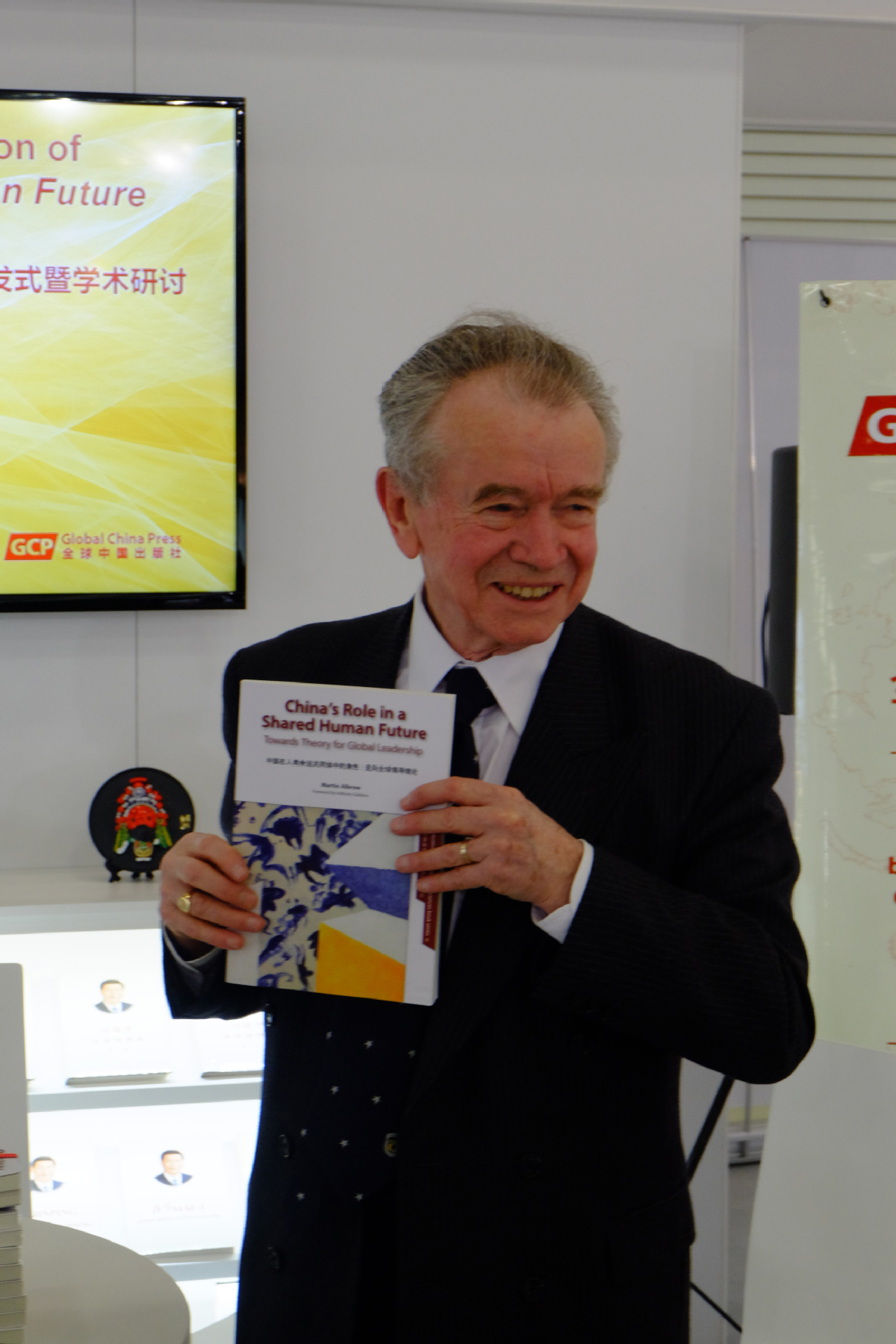New book explains role China is playing in global development
By Cecily Liu in London | chinadaily.com.cn | Updated: 2018-04-11 01:15

Eminent British scholar Martin Albrow unveiled his new book on Tuesday at the London Book Fair, exploring how China’s model of globalization promotes world peace at a time when nations are overshadowed by protectionism, terrorism, and identity crisis.
Albrow, a former professor emeritus at the University of Wales, has had a distinguished 50-year career in sociology and is the author of several books on globalization and modern society. His 1996 book The Global Age won the Amalfi Prize for Sociology and Social Sciences.
In China’s Role in a Shared Human Future, he argues that China can help global peace and development while the United States retreats into protectionism and the United Kingdom battles uncertainty over its decision to leave the European Union.
His book argues that construction of community of shared future for mankind, a concept first proposed by President Xi Jinping at the United Nations Office in Geneva last year, is a promising solution for countries facing problems such as terrorism and climate change.
The concept advocates an open and collaborative spirit when addressing shared global challenges, something that is distinctly different from the Cold War mentality in which large powers see themselves as rivals.
Albrow’s book examines how the China-proposed Belt and Road Initiative is a crucial step on the road toward implementing such a vision because it accelerates international engagement in trade, investment, communication, cultural understanding, and sharing.
“Global is a word that came to prominence early in my career as a way of referring to worldwide communication and interconnectedness,” Albrow said at Tuesday’s book launch. “Since then, it has taken on a whole cart of meanings: world dominance, erosion of national boundaries, denial of individuality … all diminishing that original shared human future.
“The weaponization of the term has given it an almost mythical status. China has kept cool and adopted its own transnational development program, the Belt and Road Initiative, which promotes infrastructure investment as a key driver for the global economy.”
Albrow’s 218-page book, which is being published jointly by the Beijing-based New World Press and London-based Global China Press, teases out Xi’s vision of a community of shared future for mankind through his scholarly lens.
Albrow’s work has been endorsed by leading scholars who say he has captured China’s unique international leadership role.
“Albrow does a remarkable job of shedding light on the pivotal role that China is likely to have in shaping (globalization),” said Anthony Giddens, a former director of the London School of Economics and Political Science. “As the US pulls back from its former global role, China not only can, but must, assume a pivotal position in shaping world society for the better.”
Olaf Corry, an associate professor at the University of Copenhagen, added: “China is becoming a global nation and this book explains how. It is unique in providing a globalist view of how China understands its new role and how its leadership is already fundamentally reshaping the architecture of the world in the 21st century.”
























